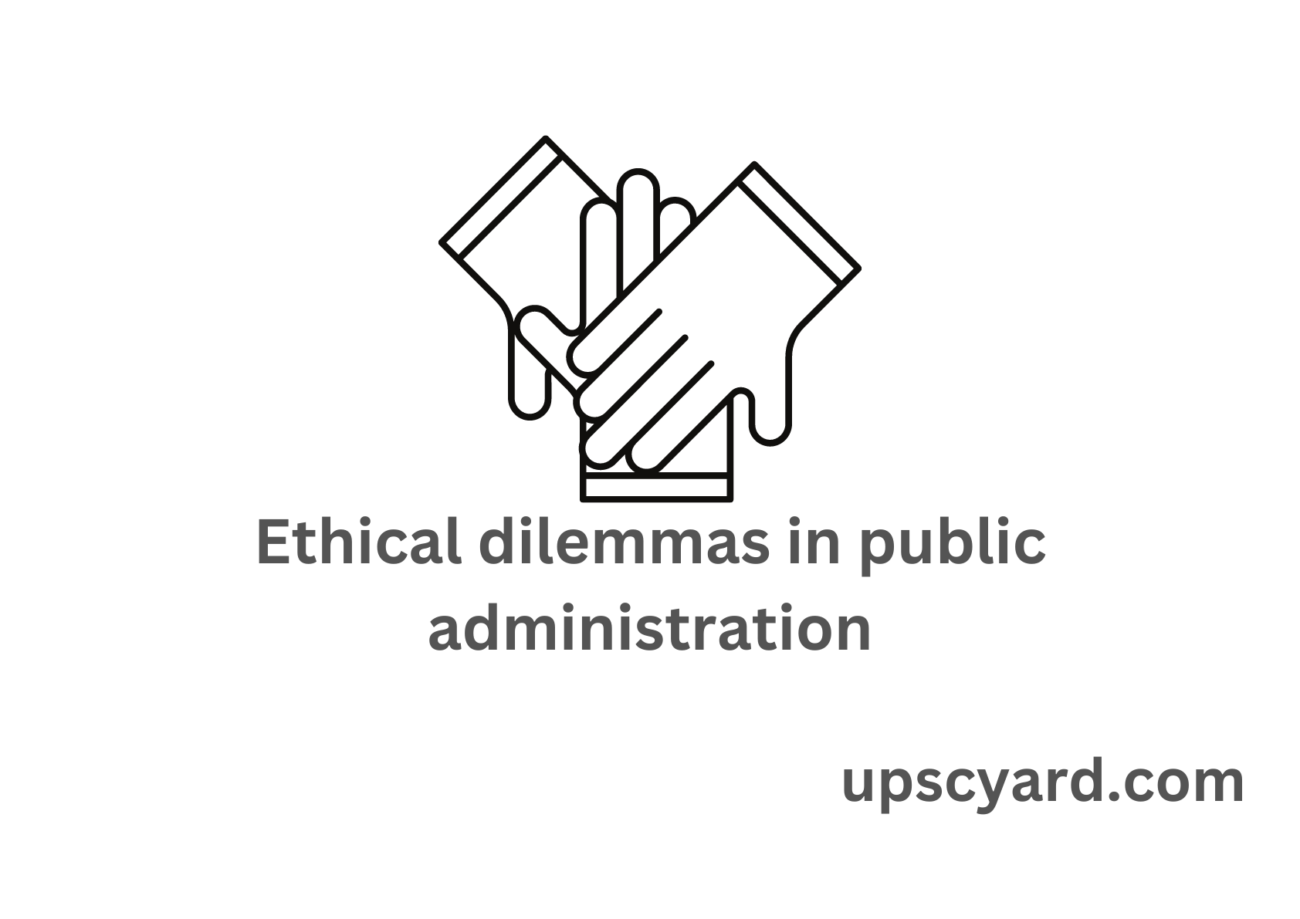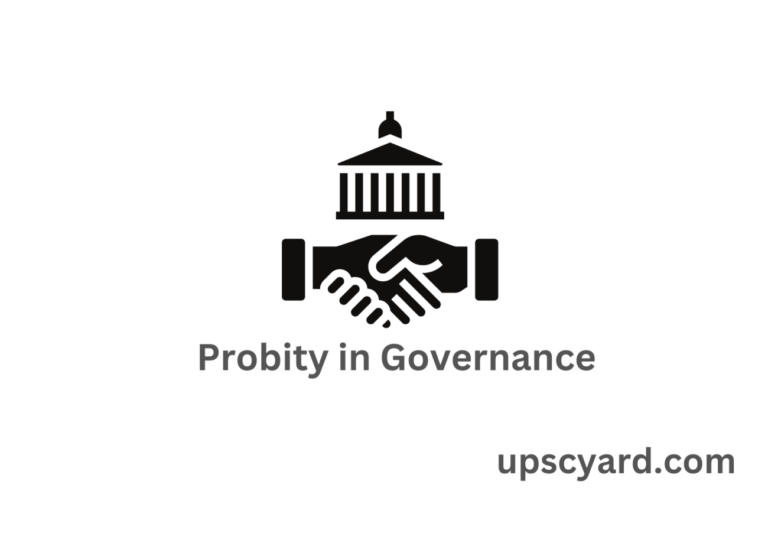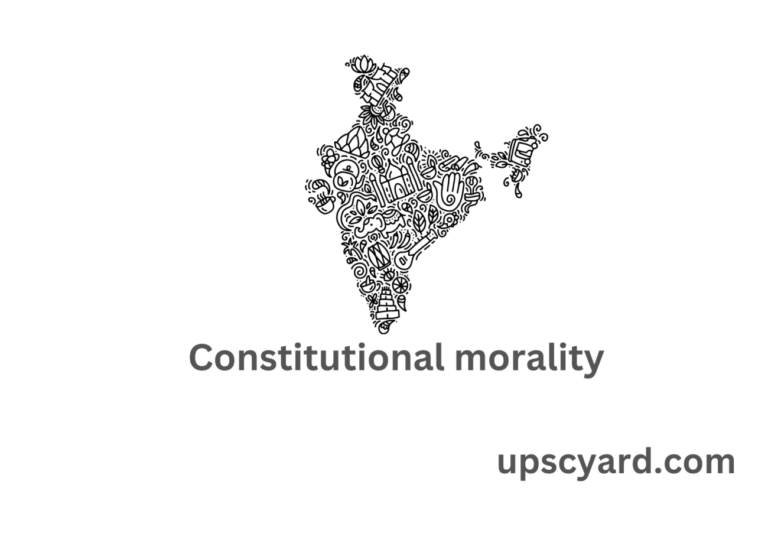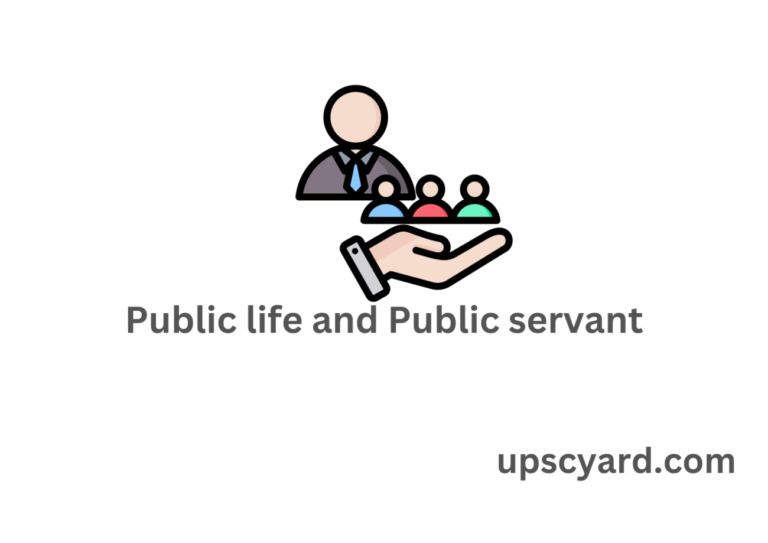Ethical dilemmas in public administration
I slept and dreamt that LIFE WAS JOY,
I woke up and saw LIFE WAS SERVICE,
I acted and behold, SERVICE WAS JOY. ”
Rabinder Nath Tagore
The fundamental starting premise is that Public Service constitutes a PUBLIC TRUST. The citizens’ expectations from Public Servants are to serve the ‘Public Interest’ with fairness, ensuring proper management of public resources on a daily basis. When Public Service is conducted in a fair and reliable manner, it serves as an inspiration for Public Trust.
A document by K. Taimni, IAS. Madhya Pradesh Cadre, 1968 Batch for Ethical dilemmas in public administration (try to absorb this nothing to memorise)
A document by commonwealth Association for Public Administration and Management (Mainly for vast understanding)
Public Servants commonly interpret ETHICS as a set of ‘prescribed’ and widely shared ‘values and standards’, encompassing various aspects, such as:
- TRUSTWORTHINESS, which involves honesty, integrity, reliability, and loyalty.
- RESPONSIBILITY, which includes accountability, pursuit of excellence, and self-restraint.
- FAIRNESS, represented by open and unbiased processes, impartiality, and equity.
- RESPECT, demonstrated through civility, courtesy, decency, tolerance, and compassion.
These ethical principles guide their conduct, particularly concerning Financial Gains, Use of Public Resources, Transparency, Accountability, and Fair Process. Upholding these standards ensures the maintenance of public trust and confidence in the role of Public Servants.
Public Servants comprehend the ESSENTIALS OF ETHICS through the following word:
Be mindful of your WORDS,
Be mindful of your ACTIONS,
Be mindful of your THOUGHTS,
Be mindful of your CHARACTER,
Be mindful of your HEART.
An ETHICAL DILEMMA represents a COMPLEX SITUATION, frequently entailing CONFLICT BETWEEN MORAL PRINCIPLES.
“ If there is a conflict between Intellect and the
Swami Vivekanand.
Heart, ALWAYS FOLLOW HEART. ”
Late Sh. Shekhawat , the then Vice President of India, while delivering Lecture on Ethical Governance said:-
The Reputation and Success of Governance depend on the conduct of Public Functionaries and the perception held by the Public about their actions. It is, therefore, of paramount importance that Public Functionaries treat everyone justly and fairly. Merely speaking about Ethical conduct is not enough; it is crucial to demonstrate it visibly and unmistakably.
Upon accepting Government Employment, all Public Functionaries must recognize their special DUTY to maintain openness, fairness, and impartiality in their interactions with society. Their personal self-interest should always be secondary to the greater Public Good, especially when faced with potential conflicts of interest that may give rise to Ethical Dilemmas. By acting with integrity and ensuring transparency, Public Functionaries can uphold public trust and foster effective governance.
Ethical Dilemmas often emerge from three crucial Relationships:
- Civil Servants and Political Office Holders
- Civil Servant and Citizens
- Intra- Civil Service ( Ministries , Departments and Agencies, that make up the Country’s or State Civil Service.)
Occasionally, when determining the RIGHT THING TO DO, a Public Servant may encounter a perplexing question:
- Would refusing to comply with the Minister’s Directive potentially upset him, causing strain in their relationship?
- Would giving in to the Minister’s pressure to please him lead to a violation of the accepted ‘Accounting Standards and Practices’?
- Wouldn’t such an action be detrimental to the overall image of Public Service?
Encountering such a situation places the Public Servant in the midst of ETHICAL DILEMMAS, where they must contemplate:
- Finding a ‘Balance’ between their responsibilities as a Senior Executive and those of the Minister, who serves as the Ministry’s Political Head.
- Upholding the RULE-of-Law, ensuring due process, and promoting fairness.
- Maintaining the Highest Administrative, Financial, Ethical, and Moral Standards within the Public Service.
Speaking TRUTH TO THE POWER is a vital aspect of maintaining PROFESSIONAL ETHICS AND MORAL INTEGRITY for Public Servants. The fundamental principles/criteria to address Ethical Dilemmas in Public Service are as follows:
- Democratic ACCOUNTABILITY of Administration.
- The Rule of Law and Principle of LEGALITY.
- Professional INTEGRITY.
This framework is referred to as the ALI model of ETHICAL REASONING IN PUBLIC SERVICE.
It is crucial to understand that there is no MAGICAL FORMULA that can instantly transform our present government into an ETHICAL GOVERNMENT. It requires each of us to embrace ETHICAL, MORAL, and SPIRITUAL VALUES and dedicate ourselves to SERVICE TO HUMANITY as a cardinal principle of life.
Quotes to use in answer writing of Ethical dilemmas in public administration related questions
“In life, you might face consequences for a while, but as they say, when you enter your ‘second innings,’ you can look back with profound satisfaction at your actions and choices.”
“When people hurt you, consider them as SANDPAPER. They may rub and scratch you painfully, but eventually, you emerge smooth and polished, while they become ‘worn-out’ and of no further use.”




